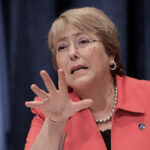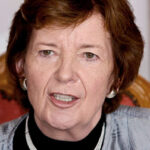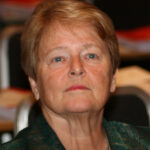The decisive challenge for world leaders at the Rio-Summit is to address income and wealth inequality, which threatens economic growth and development, produces social ills and undermines environmental sustainability. The speakers underlined the necessity to create a global governance structure that enables the integration of economic policies with social justice and environmental sustainability.
The event launched a Global Shared Societies Agenda, a joint initiative by the Club de Madrid, the Friedrich Ebert Stiftung and the Center of Concern. The Global Agenda outlines the requirements for a different model of growth and social justice, aimed at promoting long-term inclusive and sustainable growth. It outlines a political and practical action program for national governments and global institutions to embark on a path towards creating Shared Societies, based on equity, where each and every person, including those from all the identity groups that make up the society, feels at home, feels that they belong, that they can play a full part in that society and, at the same time, fulfil themselves. A Shared Society is a society in which individuals share an equal capacity to participate in economic, political and social opportunities regardless of their religion, ethnic or linguistic group, and where relations between groups are peaceful. The economic, social and environmental costs of social divisions are significant. If they are not being dealt with, the ultimate consequences for the sustainability of human economic and social life will be devastating.
The side event was co-sponsored by the Republic of Costa Rica and the International Confederation of Trade Unions. The topic of the side event was “Sustainable Development in an Unequal World”. It took place yesterday, Wednesday, 20 June 2012 at the Rio Centro Convention Center, in Rio de Janeiro, Brazil. Michelle Bachelet (Executive Director of UN Women and President of Chile, 2006-2010, and Member of the Club de Madrid), Gro Harlem Brundtland (Prime Minister of Norway, 1986-1989/1990-1996 and Member of the UN Secretary General’s High-level Panel on Global Sustainability and Member of the Club de Madrid), Sharan Burrow (General Secretary, International Trade Union Confederation), Jose Enrique Castillo (Minister of Foreign Affairs, Costa Rica), Ángel Gurría (Secretary General, OECD), Anthony Lake (Executive Director, UNICEF) and Mary Robinson (President of Ireland, 1990-1997, and Member of the Club de Madrid) addressed different facets of the event’s overarching message on the state of national and global inequalities and their relationship to sustainable development and growth.
“Although great progress has been made in human development, there is increasing evidence that we are facing serious limits, imposed by nature, creating real barriers to further growth and prosperity. If the very potential for growth itself”. Gro Harlem Brundtland
The Rio+20 Event was an opportunity to unveil the Shared Societies Agenda, developed during a seminar in April 2012 in the context of the Spring meetings of the IMF/World Bank, in which representatives of different international organizations took part.
“There are approximately one billion who go hungry at night and little children who wake up hungry at night, approximately one third of the children in the world who are undernourished, and many of them stunted and won’t reach their full potential. Is there something wrong with us as human beings that we can’t see we need a new paradigm of development? This panel is a group of “respectable” insiders, and listen to us. We are frustrated that we are at a point where the resources of our planet are becoming exhausted. We are heading toward a warming of our planet, where the population increase is rising to a point we’ve never seen”. Mary Robinson
In order to provide leaders with effective methods to advance in this process, the Shared Societies Global Agenda is intended to guide on what policy options provide the best opportunities to encourage greater equality, inclusion and sharing and thereby facilitate the creation of a more effective, efficient and sustainable economic system.
Find here the information of the Shared Societies Global Agenda.
Rio+20: Where do we go from here? An op-ed by Carla Fernández-Durán and Irene Vergara.


